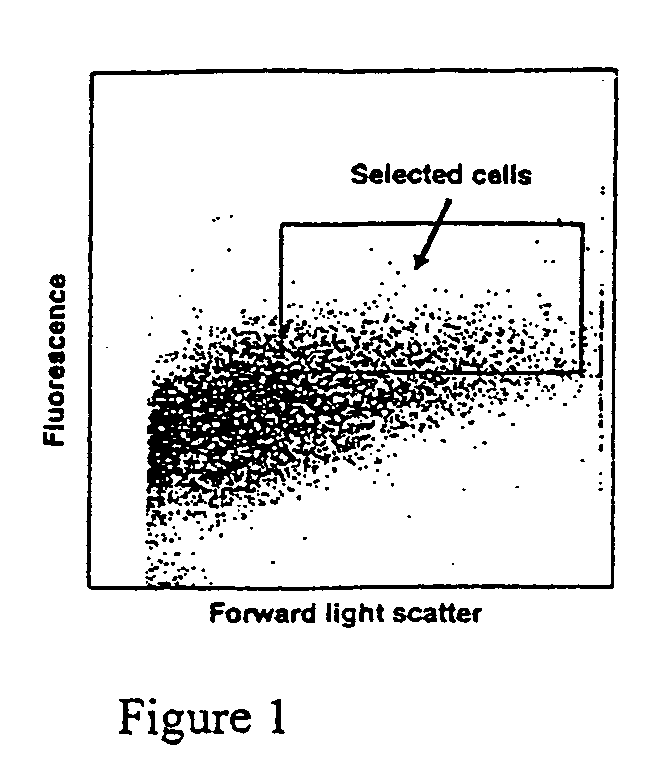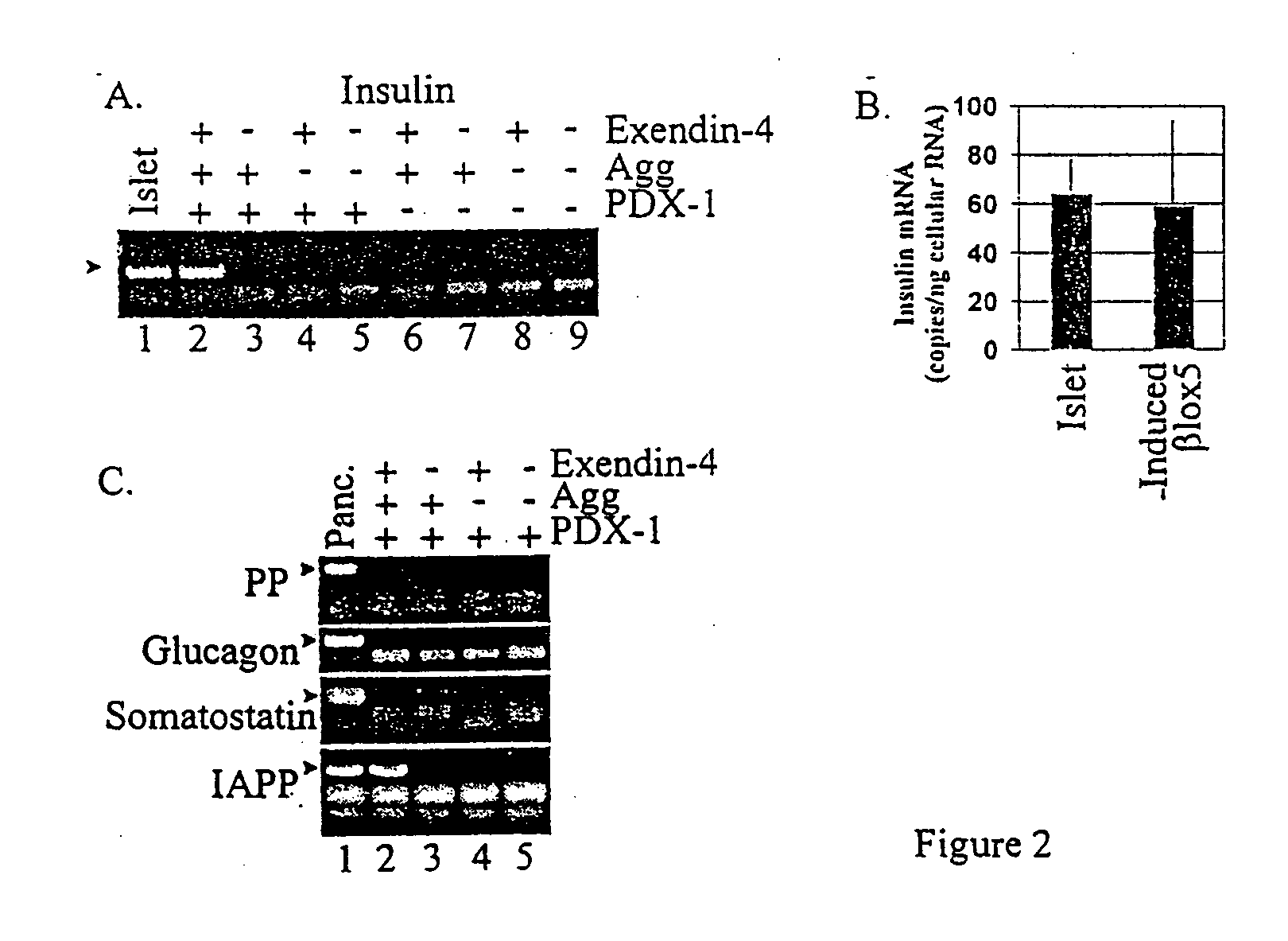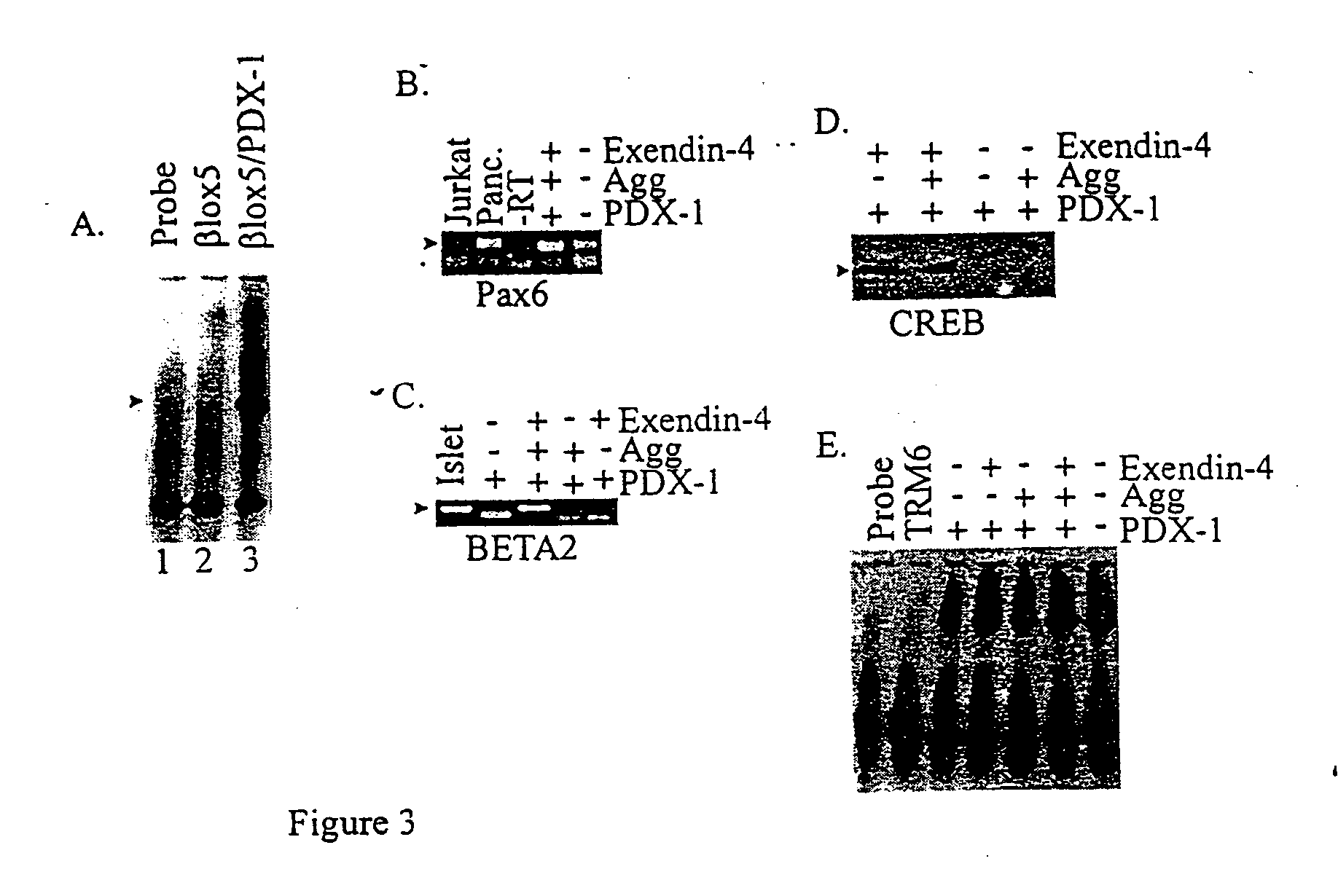Induction of beta cell differentiation in human cells by stimulation of the GLP-1 receptor
a technology of glp-1 and beta cell, which is applied in the field of induction of beta cell differentiation in human cells by glp-1 receptor stimulation, can solve the problems of 4/sup>-fold expansion in the number of cells, insufficient supply of cells, and inability to manipulate in vitro
- Summary
- Abstract
- Description
- Claims
- Application Information
AI Technical Summary
Benefits of technology
Problems solved by technology
Method used
Image
Examples
examples
[0095] The following examples are provided by way of illustration only and not by way of limitation. Those of skill in the art will readily recognize a variety of noncritical parameters that could be changed or modified to yield essentially similar results.
example i
Preparation of Immortalized Human Pancreatic β-Cell Lines
[0096] To develop cell lines from human β-cells, islet preparations were enriched for β-cells based on flavin adenine dinucleotide (FAD) autofluorescence prior to retroviral infection, as described below (FIG. 1). Immunohistochemical analysis showed that cells with low FAD autofluorescence contained mostly a with a small number of β cells, while cells with high FAD autofluorescence (selected cells in box) contained 96% insulin-positive cells. Glucagon but not insulin was detectable by RIA in culture medium from the low FAD population, while insulin but not glucagon was detectable in culture medium from high FAD cells.
[0097] The 96% pure insulin-positive population was used to create the βlox5 cell line by infection with the LTPRRNLlox retroviral vector expressing SV40 T antigen and H-rasval12 (Halvorsen et al., Molecular and Cellular Biology 19:1864-1870 (1999)). This cell line exhibits an extended lifespan and is immortaliz...
example ii
Growth Factor Expression in βlox5 Cells
[0100] The expression of some of the transcription factors that are important in establishing and maintaining β-cell differentiated function was examined (FIG. 3). Most significantly, PDX-1, a homeodomain transcription factor that is required for β-cell development and function, is not expressed in βlox5, as shown by RT-PCR (not shown) or EMSA (FIG. 3A, lane 2). This result differs from growth-stimulated primary cells, where PDX-1 continues to be expressed (Beattie et al., Diabetes 48:1013-9 (1999)). BETA2, a bHLH factor important in neurogenesis as well as β-cells is not expressed in βlox5. CREB, which plays a critical role in cAMP responsiveness in β-cells, is also not expressed (FIG. 3D). However, Pax6, which is expressed in all endocrine cells, was expressed at high levels in βlox5, consistent with an origin from primary endocrine cells. RIPE3b, a factor that binds to an element in the insulin promoter but that has not yet been isolated, i...
PUM
| Property | Measurement | Unit |
|---|---|---|
| temperature | aaaaa | aaaaa |
| time | aaaaa | aaaaa |
| time | aaaaa | aaaaa |
Abstract
Description
Claims
Application Information
 Login to View More
Login to View More - R&D
- Intellectual Property
- Life Sciences
- Materials
- Tech Scout
- Unparalleled Data Quality
- Higher Quality Content
- 60% Fewer Hallucinations
Browse by: Latest US Patents, China's latest patents, Technical Efficacy Thesaurus, Application Domain, Technology Topic, Popular Technical Reports.
© 2025 PatSnap. All rights reserved.Legal|Privacy policy|Modern Slavery Act Transparency Statement|Sitemap|About US| Contact US: help@patsnap.com



